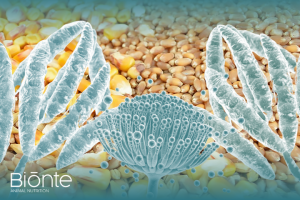
Mycotoxin Biosorbents: a promising alternative in the mycotoxins control
The use of agents that suppress or reduce mycotoxin absorption, enhance excretion or modify their mechanisms of action are the main strategies for mycotoxin detoxification

The use of agents that suppress or reduce mycotoxin absorption, enhance excretion or modify their mechanisms of action are the main strategies for mycotoxin detoxification

Clay minerals, such as aluminosilicates like zeolites and bentonites, are widely acknowledged for their diverse applications across industries (Tang et al., 2014). In aquaculture, their

In response to the growing concern about mycotoxin contamination in animal feeds, various globally recognized food safety organizations have implemented regulations defining the maximum levels

Introduction The global food crisis is a complex problem that has intensified in recent years, driven primarily by climate change and armed conflicts. These

Biomarkers in the food safety field are defined as a measurable and evaluable characteristic that is indicative of a normal metabolic process, a pathogenic process or

Mycotoxins are natural compounds produced as secondary metabolites by filamentous fungi, primarily by species like Aspergillus, Penicillium, and Fusarium, in a strain-specific manner (Egbuta et


The company that provides effective solutions against mycotoxins.
Calle México, 33. Polígono Industrial Tecnoparc.
43204 Reus (Tarragona) - España
Contact information
E-mail: bionte@bionte.com
Telephone: +34 977 317 111